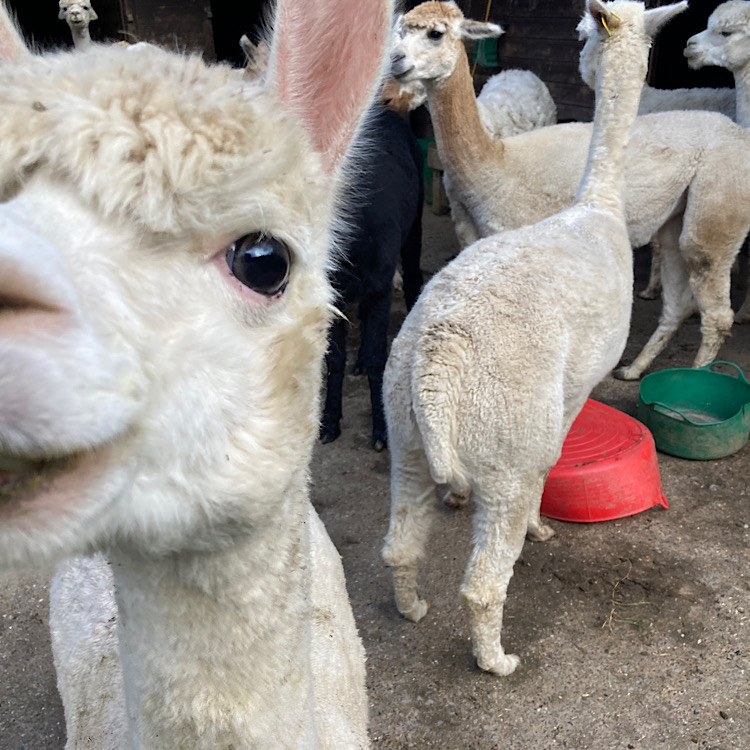I’ve been struggling of late. The Police quote below is very apropos. I think I’ve optimized too much of the frivolity out of life. The cure, obviously is to systematize my reading! …no, just kidding.
For the first 30+ years I was a voracious reader of fiction; mostly science-fiction, but also straight up classics, literature and novels. But at a certain point, I intentionally jettisoned Fiction to make room for non-fiction reading. That was a mistake. So in recent weeks I’ve invited some old and new friends back into my antilibrary.
But what really made Vinge the father of the Singularity was his fiction. His 1981 novella “True Names” created many of the tropes about artificial intelligence and virtual worlds that have now become standard. It’s such a tour de force that top computer scientists felt compelled to write a series of essays exploring its ideas, and it’s often considered the founding work of the entire cyberpunk genre.
~ Noah Smith from, https://www.noahpinion.blog/p/go-read-some-vernor-vinge
Go read some Vernor Vinge.
Every day, computers are making people easier to use.
~ David Temkin
I’m found on occasion wondering about how my brain works. How much of the way I currently think (not my opinions and positions, but the shapes and trains of my thought, the sorts of ideas which hold my interest) is inherent in the brain I developed?
Which is it: The work I’m drawn to do is such work which fits my inclinations, or the work I was simply found doing shaped my inclinations? Eventually I become painfully conscious of the time I’ve spent wondering how my brain works, and I panic.
The connection between the cerebellum and movement has been known since the 19th century. Patients suffering trauma to the brain region had obvious difficulties with balance and movement, leaving no doubt that it was critical for coordinating motion. Over the decades, neuroscientists developed a detailed understanding of how the cerebellum’s unique neural circuitry controls motor function. The explanation of how the cerebellum worked seemed watertight.
~ R Douglas Fields from, https://www.wired.com/story/cerebellum-brain-movement-feelings/
And sometimes I find articles like that one from Wired, and then I don’t feel so bad about the fact that I have no clue how my brain works. Comfortably clueless, I instead charge into application of thought aimed at action:
No matter what challenge or obstacle you face, whether it’s personal, professional, or global, there’s a path ahead. It’s all figure-out-able. you’ll find a way or make a way, if you’re willing to be relentless, stay nimble, and keep taking action. It’s especially useful to remember when things go wrong, because rather than wasting time or energy on the problem, you shift immediately to brainstorming solutions.
~ Marie Forleo
When I’m honest though, charging in holds little allure these days. I’d much rather sip tea, relax and think, “if this isn’t nice…” I’d much rather do something creative. (Writing this little 7 for Sunday missives is one thing I really enjoy even though I invariably have trouble forcing myself into the chair to get started.)
I have a friend who’s an actual painter. He had an open-plan studio apartment, and there was always finished work stacked about (and on the walls and pieces in progress of course.) At first I thought it was the “aaaaaaaand, it’s done!” part of the creative process that he (any artist) would enjoy. But then I spent some time crashing at his place on several occasions and realized I had it all wrong. At least for him, and I’ve come to realize for me too, it was everything else that lights one up: The imagining, the planning, the hesitant beginnings, the bold strokes, the fine touches…
Was the project worthy of us? Was it ours alone, in the sense that we were writing from our own gift … and in the face of our own fears? Did we live up to the goddess’s expectations of us? Did we live up to our own? Did we give it all we had?
There are no spotlights in the writer’s life. There’s no moment of acclamation as we tap in a putt on the 72nd green. Our moment is private. When I wrap a book, a lot of times I won’t even tell anybody.
This is self-evaluation. Self-reinforcement. Self-validation.
~ Steven Pressfield from, https://stevenpressfield.com/2024/04/finishing/
There are times where I’m clearly trying to shout for attention and words of wisdom like Pressfield’s remind me to check myself. Because in fact all that self’ing is the magic sauce, and returning to that practice is always the better path.
I’ve recently been thinking about a new project—specifics omitted for now—and part of the project’s story is a little tryptic: Change your mind. Change your movement. Change your life. Just as I’m writing here, it’s now clear to me that those changes are powered by that self-evaluation, self-reinforcement and self-validation.
I’ve seen the whole world six times over
~ The Police
Sea of Japan to the cliffs of Dover,
Overkill. Overview. Over my dead body.
Over me. Over you. Over everybody.
Too much information /
Runnin’ through my brain.
There’s a quote from Doctor Who, “We’re all just stories in the end. Just make it a good one, eh?”
[But ultimately acting makes you happy?] Yeah, I think. It is also about balance and finding the balance between the very cerebral part of your brain and the much more impulsive creativity that can come from chaos. So for me it is very much about that balance. The cerebral part of acting and the perfectionism can be exhausting, but the spontaneity can be very joyful. So it’s about managing these two sides of the experience. But yes it’s fun. I mean, there is no point in doing a movie if you’re not having fun.
~ Edward Norton from, https://the-talks.com/interview/edward-norton
The interviews at The Talks are delightfully bite-sized. Acting, writing, painting… all just stories in the end.
Until next time, thanks for reading.
ɕ
